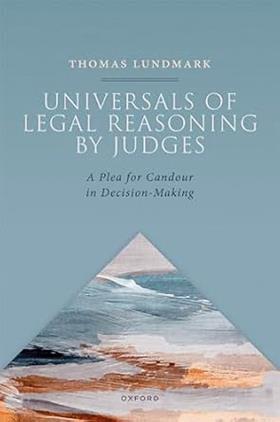Universals of Legal Reasoning by Judges: A Plea for Candour in Decision-Making
Thomas Lundmark
£90, Oxford University Press
★★★✩✩
Approaches to judicial decision-making (including the content, possibilities, and even validity of judge-made law) are the subject of numerous academic texts. This treatise makes a novel contribution to the line of enquiry by attempting to look beyond the ostensible reasons for decisions.
Lundmark identifies four approaches as elucidated in exemplar cases in the UK, Germany and the US: textual (construction of a word or phrase), historical (interpretation of what was intended via the legislative record or the precedent-setting judgment), purposive (what one might call an outcomes-based approach) and system-contextual (specific rights that might be inferred from the relevant system). He then explores how those cases could have been decided differently based on the same logic, or argues that another approach was equally – sometimes more – appropriate as an option to the presiding judge(s).

This judicial discretion, although rarely acknowledged, gives rise to an inference that outcomes are determined by some other factors. For Lundmark, these factors are the thoughts, feelings and hunches which inform but are not recorded in the reported outcome. The underlying reasoning is quite separate from the reasons given. It is an incomplete truth.
This intriguing argument boils down to the titular ‘plea’: that judges ‘articulate what they believe to be the opposing interests and policies and then candidly spell out… why they personally think that the statute or case-based rule should be amended in the way [they] have chosen’.
While the argument is well made, it is hard to see this being more than a thought exercise given the iterative development of (particularly) the common law. It would be a brave judge who felt able to step away from the established arguments that Lundmark identifies to document a more personal view.
Further, judicial decisions are delivered within a shared framework that permits understanding among the legal community. Lundmark’s request for broader articulation hints at stepping outside this boundary where it becomes unclear how the approach would fit into either the practice of law or jurisprudential theory.
For example, the recusal application made as part of the Post Office’s Horizon litigation – based on a perception of strident criticism as bias – perhaps indicates that ‘honest’ reasoning may actually give rise to more, and more personalised, litigation. Whatever the merits, systemic change would be needed for Lundmark’s plea to be answered; it is not simply a question of judges being clearer about where they stand.
Tom Proverbs-Garbett is a consultant































No comments yet